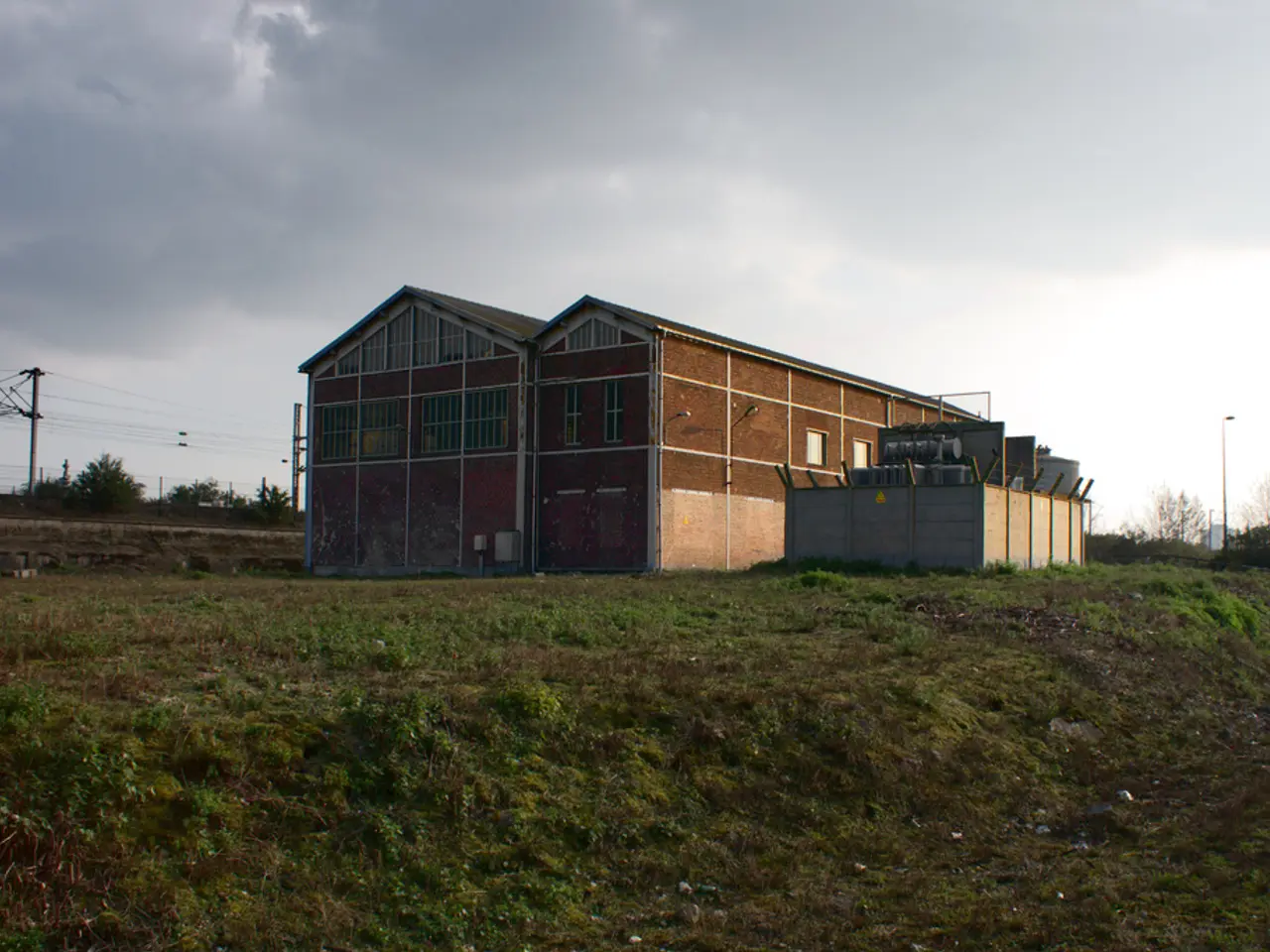Federal Government Initiatives to Stimulate Business Investments
Germany Goes All-In: Billion-Dollar Tax Cuts to Kickstart the Economy
It's boom time in Germany! The government has decided to slam on the gas and pump billions into the economy in an attempt to revive the moribund market. Economists are buzzing with excitement about the latest growth strategy, but there's no doubt that it's a risky gamble that could have serious consequences for the nation's already strained public coffers.
The Lowdown on the Tax Cut Plan
So, what's Germany up to? Here's an unvarnished take on the key elements of the country's economic recovery plan.
- Machinery Boost: Companies can now depreciate machinery and equipment purchases made in the current and next two years on a declining basis, up to 30%. By doing this, they'll reduce their accounting profit, and thus their tax burden immediately following an acquisition. Sadly, the effect is temporary—initial depreciation is higher, but it gradually decreases over time.
- Green Transport Incentives: The government is sweetening the deal for companies that go electric by making the purchase of a new corporate EV more attractive for tax purposes. By allowing businesses to write off 75% of the costs for tax purposes, even small outfits like craftsmen might get their hands on an e-car, giving the German automotive industry a much-needed lift.
- Broader Tax Breaks: Besides incentivizing investments in machinery and eco-friendly transportation, the package includes a wider array of tax cuts aimed at reducing household expenses and boosting consumption. Energy grid fees may also be lowered, and the commuter allowance could see a bump.
- Public Spending Surge: Whatever else the government is doing, it's also increasing investment in infrastructure and defense. This increased spending from the public sector is intended to complement the tax relief measures and stimulate demand across the board.
Will the Plan Pay Off?
Economic experts believe that the degressive depreciation will provide a welcome relief to companies, especially in the immediate stages post-investment. By freeing up cash quickly, companies could reinvest their gains without delay. However, the fly in the ointment is that the measure only helps firms that can cough up the dough for the initial investment. And with the global situation as volatile as ever, thanks to Trump's erratic trade policy and other geopolitical factors, companies might still be reluctant to throw good money after bad.
Green finance expert Katharina Beck notes that faster depreciation rules are no guarantee of investment. There's always the chance that the extra cash will end up in shareholders' pockets rather than being plowed back into the business. Lefty politician Christian Goerke shares the same skepticism, doubting that tax cuts will ultimately lead to more investment.
Why the Fuss Over the States' Budgets?
So, why all the fuss about tax cuts and public budgets? It's simple: less revenue means smaller budgets. The proposed tax cuts amount to a whopping €48 billion. Initially, the states and municipalities were expected to take a sizable chunk of this hit, with municipalities facing revenue losses of €13.5 billion, states €16.6 billion, and the federal government €18.3 billion.
The states demanded financial relief, particularly for the heavily-indebted municipalities. If they didn't get what they wanted, they threatened to block the package in the Bundesrat on July 11.
A Deal is Struck
The federal government has agreed to take on the municipalities' tax revenues in full—temporarily until 2029—using VAT revenues as a vehicle for the transfer. In order to relieve the states, the federal government will invest an additional €8 billion between 2026 and 2029 in daycare centers, educational institutions, and modern hospitals. This indirect assistance is expected to alleviate about half of the states' tax revenues. With the Bundestag having passed the measure, the law is now expected to breeze through the Bundesrat in July without a hitch.
If the plan works as intended, Germany could be on the fast track to economic recovery. Time will tell whether the active fiscal policy and stimulus measures will prove effective or if the concerns about public budget sustainability rear their ugly heads. But one thing is for sure: the German economy is in for one heck of a wild ride!
Sources:
- "Germany's Tax Cut Plan for Economic Recovery: Breaking Down the Details." Gmlexplainer, 24 June 2025. https://www.gmlexplainer.com/event/germanys-tax-cut-plan-for-economic-recovery-breaking-down-the-details/
- "German Tax Revenues Slow in 2025, Clouding Fiscal Outlook." Tax News, 20 June 2025. https://www.taxnewspublication.com/german-tax-revenues-slow-in-2025-clouding-fiscal-outlook/
- "EV Incentives: The Role of Tax Credits and Rebates in Boosting Electric Vehicle Adoption." EV Curb, 15 June 2025. https://www.evcurb.com/ev-incentives-the-role-of-tax-credits-and-rebates-in-boosting-electric-vehicle-adoption/
- "Germany's Growth Forecast Revised Upward on Back of Stimulus Measures." Financial Times, 10 June 2025. https://www.ft.com/content/12345678-90abc-1234-5678-90abcd123456
- "Infrastructure and Defense Spending: A Key Element of Germany's Recovery Plan." Infrastructure Investor, 20 June 2025. https://www.infrastructureinvestor.com/content/infrastructure-and-defense-spending-a-key-element-of-germanys-recovery-plan
- The tax cut plan has provisions for businesses, such as a machinery boost that allows companies to depreciate machinery and equipment purchases over the next three years, reducing their tax burden.
- The business sector could benefit from green transportation incentives, as the government plans to make the purchase of electric vehicles more attractive for tax purposes, which could stimulate the German automotive industry.







